Acute Lymphoblastic Leukemia (ALL) — Stem Cell Transplant: Treatment in the Best Hospitals in the World
Treatment prices are regulated by national law of the corresponding countries, but can also include additional hospital coefficients. In order to receive the individual cost calculation, please send us the request and medical records.
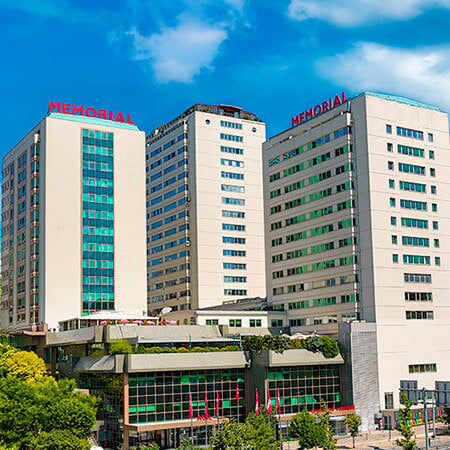
Department of Hematology and Bone Marrow Transplantation
The Department of Hematology and Bone Marrow Transplantation offers the full range of medical services for patients with benign and malignant diseases of the blood and hematopoietic system. In addition, the department is the leading highly specialized Turkish medical facility in the field of bone marrow transplantation. This procedure is indicated for patients with leukemia, lymphoma, multiple myeloma and aplastic anemia. The Section for Bone Marrow Transplantation meets all the current standards of modern medicine, as well as the criteria of the European JACIE organization, which accredits hospitals specializing in this procedure. The patients with blood malignancies receive the most effective chemotherapy regimens, which allow the doctors to achieve brilliant therapeutic results even in especially complex clinical cases. The department's doctors also successfully perform apheresis procedures.
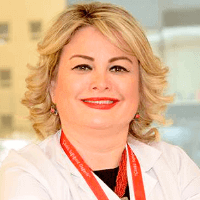

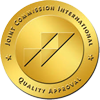

Department of Hematology, Oncology, Rheumatology, Infectology and Bone Marrow Transplantation
The Department of Hematology, Oncology, Rheumatology, Infectology and Bone Marrow Transplantation offers modern diagnostics and treatment in all areas of its specialization. The medical facility treats patients with solid malignant tumors of various locations, malignant and benign diseases of the hematopoietic system, rheumatic diseases, and infections. The department enjoys a reputation as one of the leading health facilities for bone marrow transplants in Germany, which is confirmed by accreditation in accordance with JACIE standards. More than 80 allogeneic and more than 100 autologous bone marrow transplants are performed in the medical facility annually. In addition, the department successfully carries out innovative CAR T-cell therapy, which is available only in the most advanced medical centers worldwide. The department is part of the Comprehensive Cancer Center Ulm (CCCU), where a multidisciplinary team of highly professional doctors takes care of the health of patients. The high quality of medical services is confirmed by the certification of the German Cancer Society (DKG). The health of patients is in the safe hands of experienced specialists who strive to provide each patient with the most effective treatment using advanced therapeutic methods. The medical facility has 112 beds and many specialized outpatient clinics.
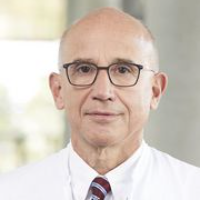





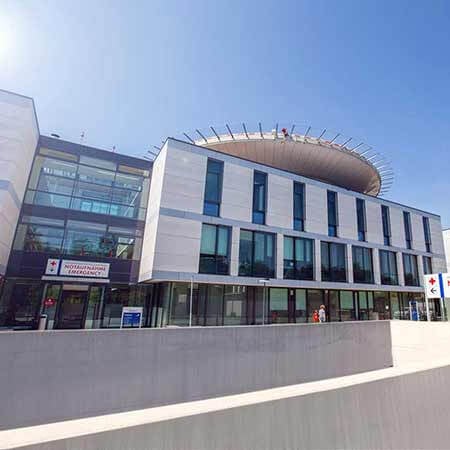
Department of Hematology and Oncology
The Department of Hematology and Oncology offers the full range of diagnostics and treatment of blood diseases, coagulation disorders, oncological diseases and related pathological conditions. The treatment is provided both on an outpatient and inpatient basis. The patient is offered a comprehensive treatment, including intensive care to eliminate side effects associated with the tumor and therapy, development of individual recommendations on nutrition, physiotherapeutic measures and psycho-oncological care.
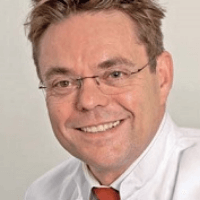
Stem cell transplantation is a procedure for the treatment of acute lymphoblastic leukemia. It is more effective than chemotherapy, but more expensive and more often causes side effects. It is used in extreme cases when it is impossible to cope with the disease in other ways. The doctors mainly apply donor stem cells. They are obtained from bone marrow or peripheral blood.
Why is the stem cell transplantation carried out?
Bone marrow transplantation is rarely applied for the treatment of acute lymphoblastic leukemia in adults. It is mostly carried out for the treatment of acute lymphoblastic leukemia in children. It increases the chances to cure the disease completely. Stem cell transplantation is carried out at the stage of consolidation – when the remission of the disease is achieved.
Acute lymphoblastic leukemia can be successfully treated by means of chemotherapy, but the problem is that too high doses of drugs cannot be applied. They damage bone marrow and impair the haematopoiesis. If standard doses are applied, not all malignant cells may die. As a result, some children may have relapses.
Stem cell transplantation is an option for the treatment of acute lymphoblastic leukemia in children, in which the doctor can apply high-dose therapy. Although it destroys patient's own bone marrow, it will be transplanted and haematopoiesis function will be restored.
Indications
Stem cell transplantation can be indicated for the child in the following cases:
- risk of relapse after chemotherapy is rated as high;
- initially poor response to chemotherapy;
- early relapse after achieving a remission;
- severe types of T-cell leukemia;
- Philadelphia chromosome leukemia.
Stem cell transplantation is usually not carried out if a relapse occurs later than 6 months after the chemotherapy completion. In this case, the repeated course of drug administration is very likely to be successful.
Allogeneic transplantation
Bone marrow transplantation in leukemia is mostly carried out from another person – from a donor. It is better if a person is a brother or sister of the child. Families do not always have other children. In addition, if they are, they do not always have sufficient tissue compatibility. If appropriate donor among close people is not found, he will be searched in the donor database by the HLA compatibility. The higher it is, the greater the chances of successful procedure. In case of insufficient compatibility, graft versus host disease may occur, which ends with the death of the patient.
Nowadays, in many countries, the doctors freeze umbilical cord blood after childbirth. It persists for a long time and can be used as a source of stem cells for allogeneic transplantation, including in the case of acute lymphoblastic leukemia, but the number of cells is small. Their amount can be sufficient for a child, but not for an adult patient.
Autologous transplantation
Occasionally, the patient himself may be the source of stem cells, but such approach has less chances of success. After all, his own tissues are affected by the tumor process. Sometimes the doctors manage to obtain the bone marrow without malignant cells. The implantation may be carried out after additional processing.
Autologous transplantation is safer, but less effective. Although this type of bone marrow transplantation does not produce graft versus host diseases, it also does not initiate graft versus tumor effect. Therefore, the chances of complete cure are lower, they depend solely on whether the cancer is completely destroyed during high-dose chemotherapy. The patient receives drugs not only before, but also after transplantation.
Is stem cell transplantation dangerous?
Stem cell transplantation is dangerous for a child. For this reason, the doctors perform it only in extreme cases when it is impossible to cure leukemia in other ways.
Allogeneic transplantation carries three great dangers, but the possibility of one of them is very low, almost zero. These include:
- Cells will not survive. They will be destroyed by the recipient's body before their number becomes sufficient for the normalization of hematopoietic function.
- Graft versus host disease. New cells can attack healthy ones. Sometimes this reaction proceeds in a mild form, but the severe cases are also possible. The result is the death of the patient.
- There is a theoretical possibility of transplantation of stem cells, which are affected by parenteral infection. In developed countries, such cases are practically excluded.
Stem cell transplantation from a relative is less risky than from a another donor.
In addition, the number of the following complications can be caused by high-dose chemotherapy:
- During the first 6 weeks after transplantation, the blood practically does not contain leukocytes. Therefore, the risk of infectious complications is possible. After this critical period, the risk of infections begins to decline. The immune system is completely restored only after 6-12 months.
- Hemorrhages are possible due to the decreased number of platelets. They are most likely during the first 3 weeks. The problem can be solved by means of transfusion of platelet mass. Therefore, severe hemorrhages usually do not occur. The case is limited to bleeding gums and slight bruising on the skin.
- Interstitial pneumonitis. This is inflammatory condition of the lungs. In contrast to pneumonia, it has a non-infectious origin. The pathology can be caused by chemotherapy and manifests itself as connective tissue inflammation. The occurrence of this complication is most likely during the first 100 days, the possibility persists up to 2 years after transplantation.
To avoid complications, the doctors carefully monitor the patient's condition and the symptoms. They regularly perform tests and chest X-ray.
If allogeneic stem cell transplantation is successful, it usually cures the disease. Relapses are sometimes possible, but they occur much less frequently than after chemotherapy alone.
Treatment abroad with the Booking Health company
To undergo treatment of acute lymphoblastic leukemia abroad, you can use the services of the Booking Health company. You will get the following benefits:
- We will study your medical history and select the best clinic where you will be most likely to successfully treat acute lymphoblastic leukemia.
- Reduced cost of bone marrow transplant in Germany due to the absence of overpricing and additional coefficients for foreign patients.
- Booking an appointment for bone marrow transplantation on the most suitable dates for you.
- Preparation of the diagnostic and treatment program taking into account previously performed examinations.
- Establishment of communication directly with your attending physician.
- Monitoring of the program at all its stages.
- Control of invoices, return of unspent funds upon the diagnostics and treatment completion.
- Buying and forwarding of medicines.
- Organization of additional diagnostics or treatment.
- Communication with the clinic upon completion of the diagnostics and treatment of acute lymphoblastic leukemia abroad.
The Booking Health company will provide you with top-class services. We will book a hotel and airline tickets, help you to prepare the documents, meet you at the airport and take you to the medical facility.

